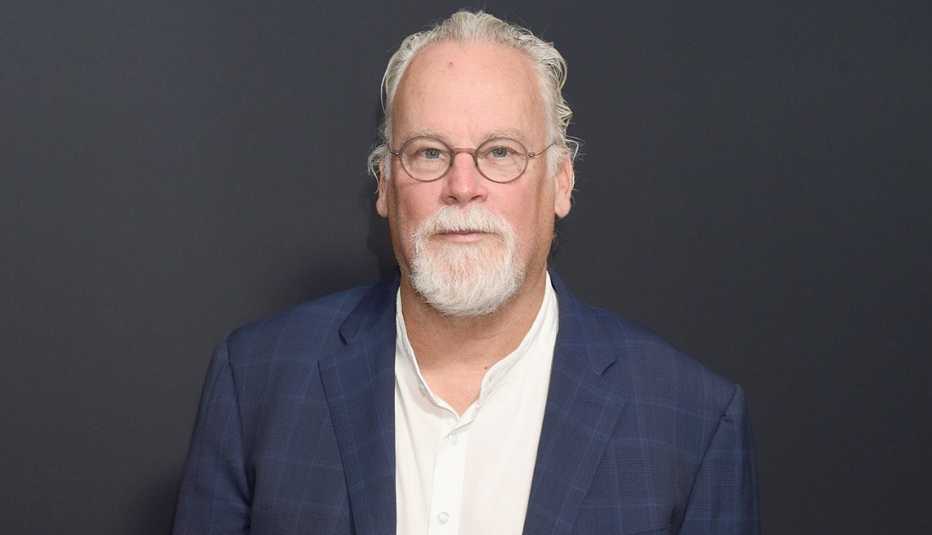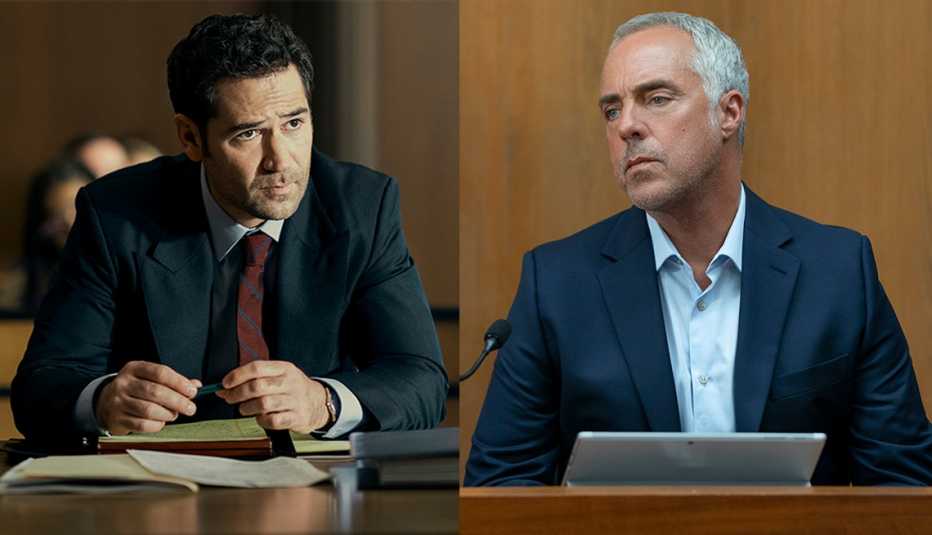How seductive is the idea of writing for prestige TV?
I always say I’m a book writer who happens to be moonlighting in Hollywood. I had my first book published 30 years ago. [Connelly has sold more than 80 million copies of his 37 crime novels.] TV is a shiny new thing, an extension of telling these stories and reviewing these characters. It’s interesting and I learn a lot, but at the end of the day I’m a book writer and that’s what I tell everybody, including my wife.
Which prompts the question: How did you become that “book writer”?
My mother was a major, major reader and she really liked crime fiction — more soft-boiled than what I’m associated with now — but she passed on her books, Agatha Christie, P.D. James, to me. I was pretty well rounded, but somehow the work of Raymond Chandler escaped me until I was a freshman in college in 1975 and saw a movie at dollar movie night at the student union that was based on his book The Long Goodbye. The movie really impressed me. I bought the book and I loved it. That led me to the whole series of Raymond Chandler, and when I came out of that tunnel of reading, that’s when I said, “You know what? I want to try to do this. It’s a long shot, but I want to try to be a writer.” I changed my major, and here we are now.
But your father refined that desire.
When I talked to my dad about [wanting to be a crime novelist], he’s the one who said, “Go into journalism. Get on the cop beat and learn the world you want to write about. And if that doesn’t work out, you have an interesting job.”
We heard it runs in the family.
I had a great-grandmother who was a reporter in Maryland. I have her typewriter that was made in 1906. It’s a keepsake. She did farm reports in southern Maryland. I’ve never seen anything she wrote; I’ve just been told.
You took him up on the idea, working as a crime reporter at Florida newspapers and then the Los Angeles Times. What was life on the cop beat like?
I got to see some of the noble aspects of this thankless job. If you do it right [policing], very few people know about it. I was there as a reporter to make sure everybody knew you did it wrong. But I also saw the ones who persevered and were fair, and I met some people that in my opinion were pretty heroic. I try to take aspects of them and find them in the characters I write about. Now, all the technology — they didn’t have DNA or the internet when I was a reporter — all that to me is window dressing. Whether it’s in a book or on a TV show, it’s really about the character you create or perform as an actor. That’s what’s important.
Have you ever jumped out of your crime lane?
About 15 years ago someone was putting together a collection of short stories, and to be in the collection you had to write something completely different from what you were known for. So I wrote a ghost story. And the story still sticks with me. I do like to watch a lot of horror stuff on TV: ghost stuff, paranormal activity. I’m at the stage where I say, “Do I write a book in this manner, or should I try to do a book or a TV show or a screenplay?” I haven’t quite decided, but it’s very tempting at this point in my life.
What was your pandemic experience like?
I can’t complain about it because basically that’s been my life for 30 years. I work from home, so being locked down wasn’t that much different. In the second year I had two books come out, so that underlined to me I had a lot of time for creative efforts during the pandemic. On the tail end, though, I got sick. I got COVID. I didn’t have it that bad, but I have weird brain fog at times and memory loss at times. Hopefully that’s going away soon. I have to reread everything I wrote yesterday. I reread in the morning to make sure it makes sense and I didn’t screw things up, but it also rekindles what I’m doing in case I have forgotten.
What do you tell aspiring writers when they ask for advice?
Universally, people are looking to take a ride with an interesting character, and they’re trying to see themselves in characters making difficult choices and the obstacles they overcome. It’s hard to give advice on something that starts from nothing. If you’re going to be a book writer or a storyteller, it comes out of your head and filters through your experiences and your inspirations. It’s hard to say, “Go out there and get inspired.”
But maybe there are Harrys and Mickeys out there to be discovered?
You’ve got to have a story; you’ve got to have the character to go out with. You’ve gotta keep your head down and never lift your finger up and hold it up to the wind [to find out] what “they” are looking for out there. You have to keep your head down and write a story that you like.






































































More on Entertainment
22 of 2022’s Top New Books (So Far)
Early favorites include gripping thrillers, literary fiction, health and finance guides
The 10 Greatest Stephen King Films — and 5 to Skip
The King of Horror has inspired a scary ton of movies, both fantastic and horrifyingThe Ultimate Agatha Christie Movie Watchlist
10 twisty-turny murder mystery delights jam-packed with stars